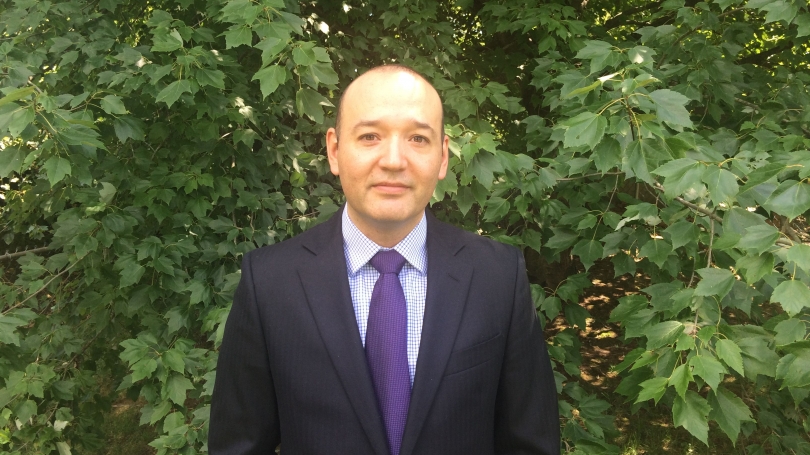
Alberto J. Lamadrid, Lehigh University - February 20
"Resilience and response to high impact events: From energy system operators to households"
Alberto J. Lamadrid, Lehigh University
Thursday, February 20
5:00-6:00 pm
Steele 006
Increased incidence of extreme events and socio-economic losses due to power outages create a fundamental concern for operators and planners to rapidly restore the power system. Also, extreme events cause populations to face the decision to evacuate more often. These two intertwined problems will be discussed.
"Resilience and response to high impact events: From energy system operators to households"
Alberto J. Lamadrid, Lehigh University
Thursday, February 20
5:00-6:00 pm
Steele 006
Abstract
The increased incidence of extreme events and the associated socio-economic losses due to power outages during the last decades are evidence that enhancing the ability to rapidly restore the functionality of the power system is a fundamental concern for operators and planners. Moreover, extreme events lead to situations in which populations are faced with the decision to evacuate more often.
For system operators, the inherent uncertainty of these extreme events makes the solution to the economic restoration of the electricity network's with network constraints challenging. In particular, the allocation of resources to quickly restore the system requires to make decisions in terms of what demands to serve and how to reconfigure the system dynamically.
For households, there is a body of literature studying issues related to evacuation and disruptions due to these natural hazards, including the perspective of the agencies in charge, businesses that may see disruptions in their supply chains, and residents faced with the prospect of having to leave their homes.
In this talk we study these two intertwined problems. For the system operator problem, we propose and develop a model to deal with the restoration process of future power systems, embedding some of the characteristics these systems are likely to have. More specifically, our formulation can deal with radial and meshed topologies, and it requires little pre-processing of the input data. Additionally, we extend the model to allow for possible mobile and fixed distributed generation technologies and distributed energy resources, and explicitly include demand responsive loads with a minimum satisfiability constraint. Thus, this extended formulation can be used as an operation and a short-term planning tool for the Distributed Generation (DG) scenario-based location problem.
For the household problem we examine (1) the inter dependencies that affect the individual evacuation decision; (2) the characteristics of the decisions made by evacuees; and (3) the relationship between infrastructure and evacuation decisions, including the electricity system, the fuel and gas network, and health care services. We analyze infrastructure, economic and demographic factors affecting the decisions to evacuate, and study the behavior of evacuees.
Bio-sketch
Alberto J. Lamadrid L. (Ph.D. Applied Economics and Management, Cornell University, 2012; M.A. Economics New York University, 2004; B.Sc. Electrical Engineering, Universidad de los Andes, Colombia, 2001) is Class of 1961 associate professor in the Economics Department at the College of Business and Economics, and in the Industrial and Systems Engineering Department at the P.C. Rossin College of Engineering and Applied Science at Lehigh University. He is also a member of the Institute for Cyber Physical Infrastructure and Energy at Lehigh University. He has participated in NSF and the Department of Energy funded grants, as well as other awards funded by the state of Pennsylvania and EPRI. His research interests are in electricity markets, power systems, and energy economics. He has worked on topics involving multi-period stochastic optimization in electrical networks, modeling and strategic management of resilient interdependent systems, adoption of renewable energy sources and the valuation of power infrastructure assets. He is currently a visiting professor on a Sabbatical Leave at the Massachusetts Institute of Technology (MIT), Laboratory for Information and Decision Systems (LIDS).
Sponsored by the Arthur L. Irving Institute for Energy and Society and the Environmental Studies Program at Dartmouth College
Free and open to the public.